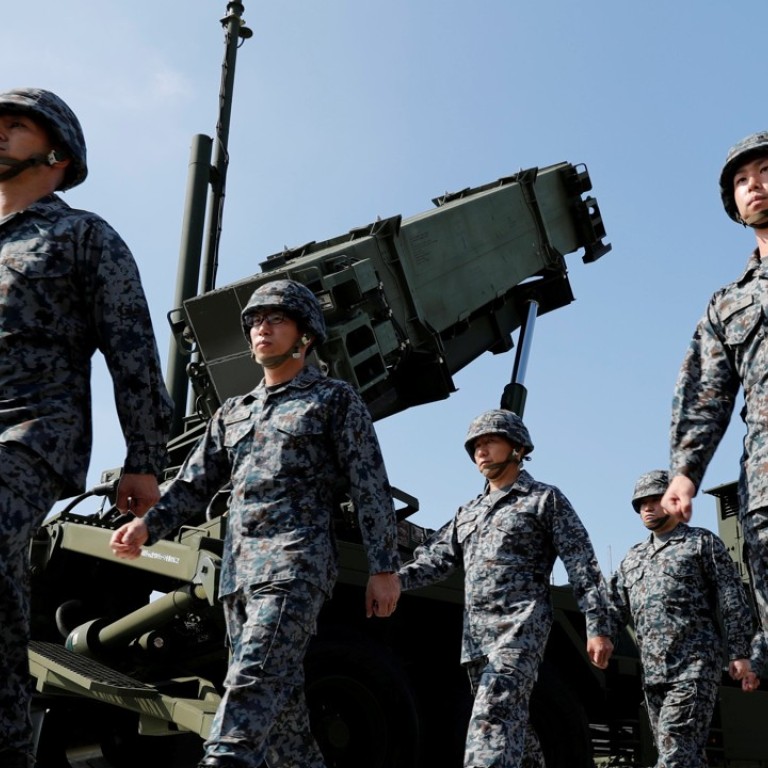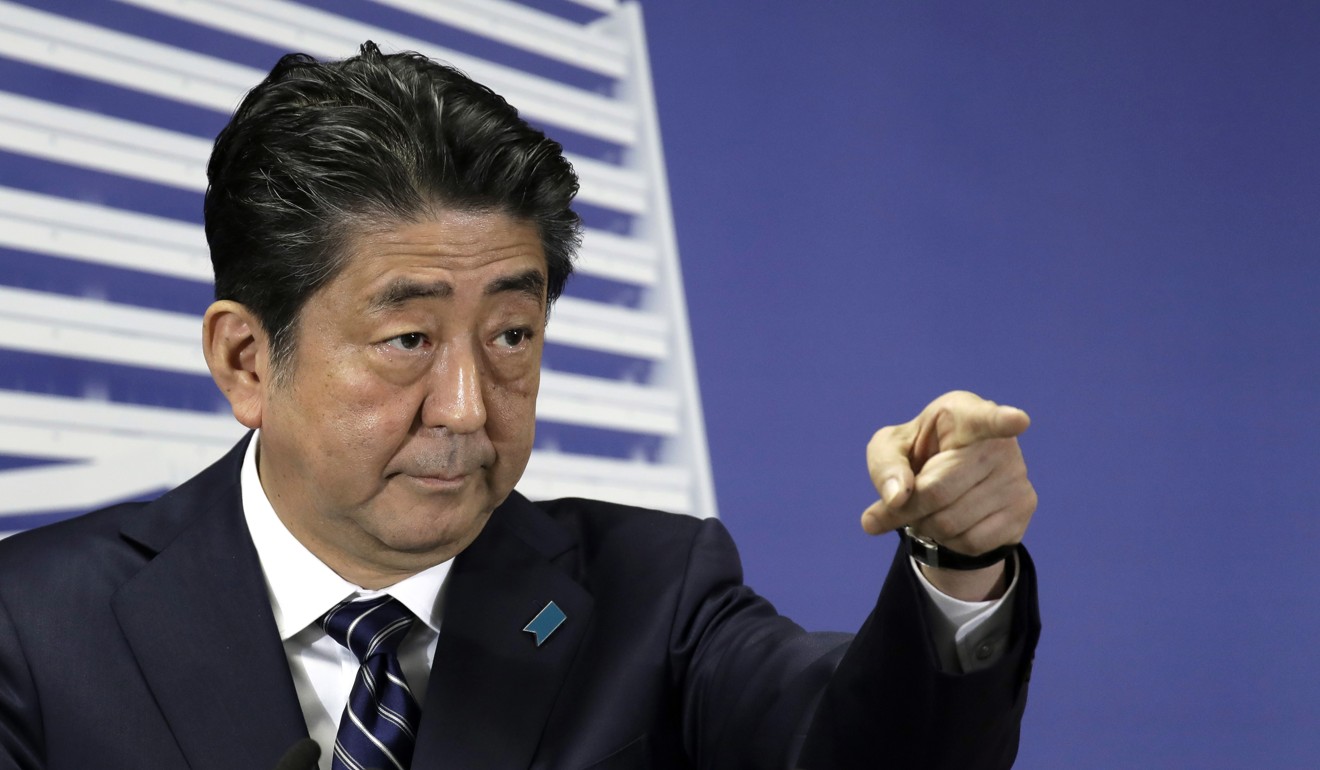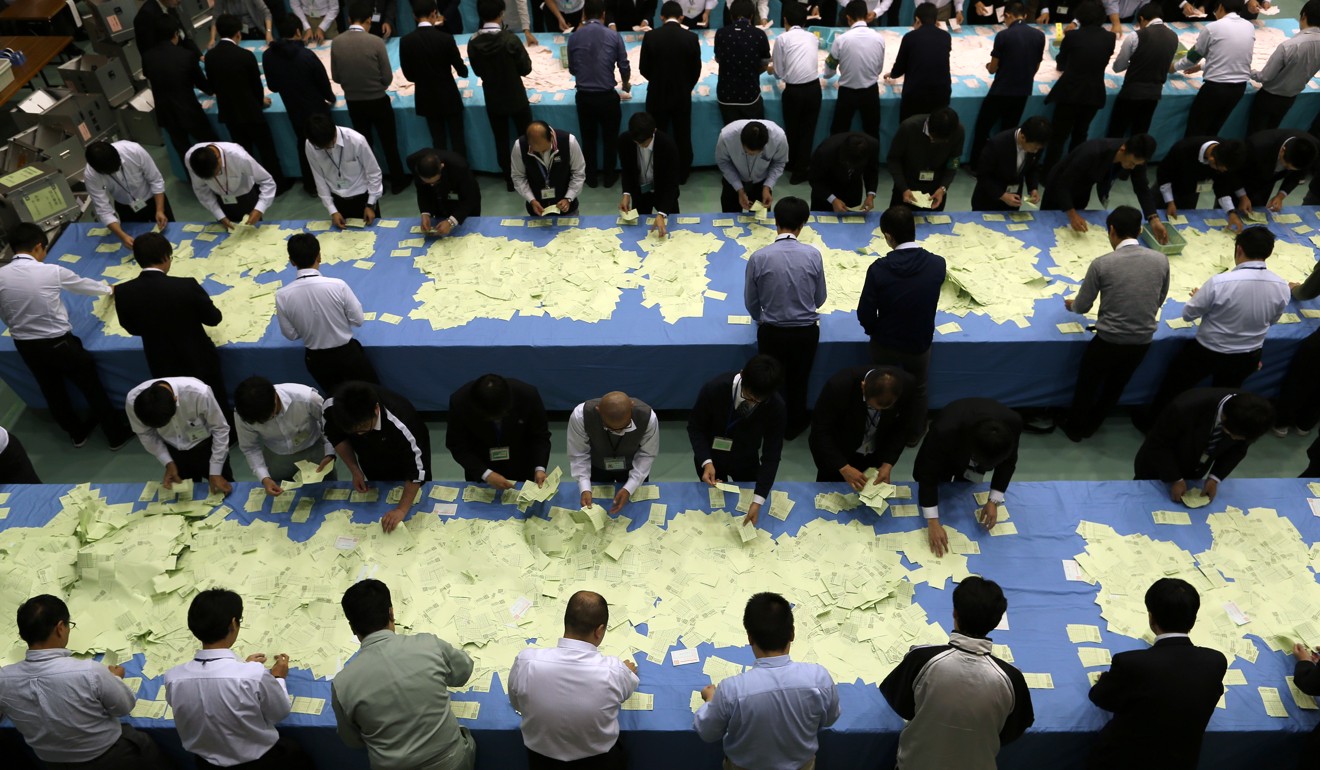
Abe’s election super majority puts Japan’s pacifist constitution in his crosshairs
The resounding victory for the hawkish PM will re-energise his drive for constitutional recognition of the military – an alarming prospect for East Asian neighbours
Buoyed by a huge election win, Prime Minister Shinzo Abe signalled a push towards his long-held goal of revising Japan’s post-war, pacifist constitution on Monday, but will need to convince a divided public to succeed. At the same time, China called on Japan to continue along its “peaceful path”.
Parties in favour of amending the US-drafted charter won nearly 80 per cent of the seats in Sunday’s lower house election, media counts showed. Four seats remain to be called and final figures are expected later on Monday.
Formed by liberal members of the Democratic Party, which imploded before the election and no longer exists in the lower house, the CDPJ won 54 seats, a fraction of the ruling bloc’s two-thirds majority in the 465-member chamber.
Abe said he wanted to get other parties on board, including Tokyo Governor Yuriko Koike’s new conservative Party of Hope, and was not insisting on a target of changing the constitution by 2020 that he floated earlier this year.

We aim to win the understanding of the people, so that we can gain a majority in a referendum
“We won a two-thirds majority as the ruling bloc, but it is necessary to strive to form a wide-ranging agreement among the ruling bloc and opposition (to revise the constitution),” Abe said Monday.
“And then we aim to win the understanding of the people, so that we can gain a majority in a referendum.”
He stopped short of claiming to have won a mandate for amending the constitution in Sunday’s election.
Abe also said he would “confirm close cooperation” on North Korea with Donald Trump when the US president visits Japan next month and then discuss the issue with the Chinese and Russian leaders.
North Korea, which has threatened to “sink” Japan and fired two missiles over its northern islands, dominated the 12-day election campaign that Abe eventually won comfortably.
Amending the charter’s pacifist Article 9 would be hugely symbolic for Japan. Supporters see it as the foundation of post-war democracy but many conservatives view it as a humiliating imposition after Japan’s defeat in 1945.

It would also be a victory for Abe, whose conservative agenda of restoring traditional values, stressing obligations to the state over individual rights and loosening constraints on the military, centres on revising the constitution.
China and the two Koreas – both victims of Japan’s 20th century adventurism – are also deeply hostile to anything that could be seen as re-militarisation.
China on Monday urged Japan to maintain its peaceful development following Abe’s victory.
Foreign Ministry spokesman Geng Shuang said Beijing hopes Japan takes “substantive actions to promote the stable improvement of bilateral relations” and “continue to follow the path of peaceful development”, when asked about the result of Sunday’s general election.
Any revision of the constitution requires support from two-thirds of the members of both chambers of parliament and a majority in a public referendum, with no minimum quorum.
“Abe would want to see a constitutional revision but we know he is ideologically on the right and he’s very pragmatic at the same time. And I think that pragmatism will force him to back off from pushing that issue too hard,” said Gerald Curtis, professor of political science at Columbia University.
Abe proposed last May adding a clause to Article 9 to legitimise Japan’s Self-Defence Force. Read literally, Article 9 bans a standing military but has been interpreted to allow armed forces exclusively for self defence.
Parliament enacted laws in 2015 allowing Japan to exercise collective self-defence, or aid allies under attack, based on a reinterpretation of the constitution rather than a formal revision.
Critics, including CDPJ leader Yukio Edano, say those laws violate the constitution.
The LDP’s junior partner, the Komeito, is cautious about revising Article 9, perhaps even more so after signs that some of its dovish supporters had voted for the CDPJ. It also believes that the biggest opposition party should agree with the proposed changes.
Opinion polls show the public is divided on Abe’s proposal. An NHK survey before the election showed 32 per cent in favour, 21 per cent opposed, and 39 per cent unsure.
Media exit polls showed that, despite the LDP’s big win, 51 per cent of voters don’t trust the prime minister, a hangover from suspected cronyism scandals that eroded his support earlier this year and a potential risk if a referendum is held.
Additional reporting by Agence France-Presse, Associated Press

